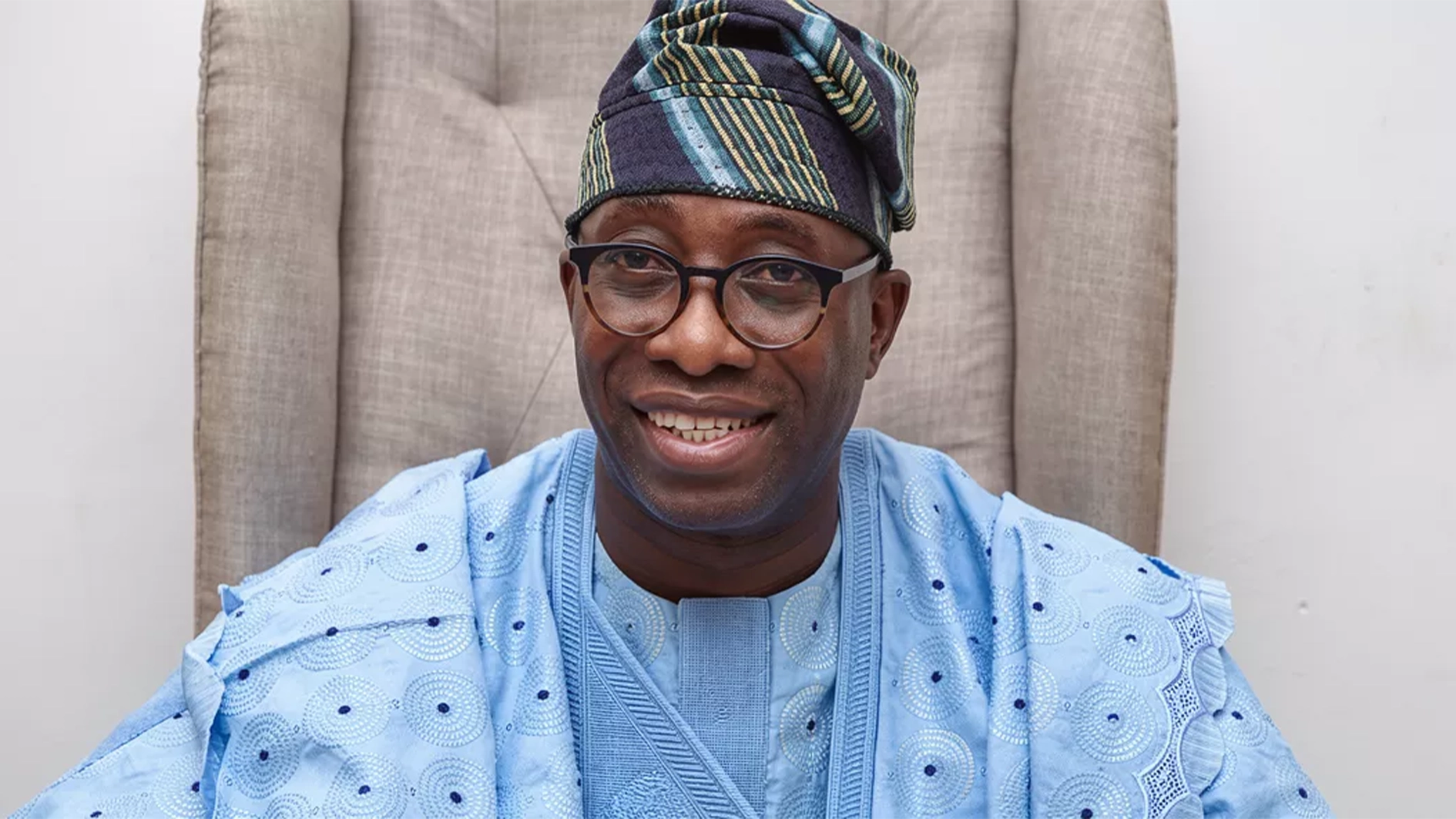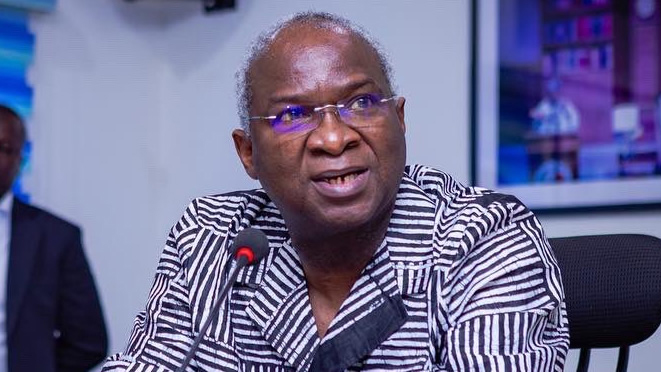Amina Oyagbola is the founder and chairperson of Women in Successful Careers (WISCAR). To address gender disparity in Nigeria’s legal and governance sectors, the group launched its Women in Law Mentoring Programme (WILMP). Anchored on research and real-world insights, the initiative aimed to reach 300 women, starting with its inaugural cohort of 150 mid-career legal professionals. These women have been paired with seasoned mentors to accelerate their leadership journeys. In this interview with JOSEPH ONYEKWERE, Oyagbola shares the inspiration behind WILMP, the pressing challenges women face in the legal profession, and the organisation’s broader vision for systemic change and sustainable impact.
What inspired this specific focus on women in law and governance?
The inspiration for the WISCAR Women in Law Mentoring Programme (WILMP) came from a clear gap we could no longer ignore. Despite the growing number of brilliant women in Nigeria’s legal field, very few are reaching leadership positions. Our needs assessment report, developed in collaboration with the International Federation of Women Lawyers (FIDA) Nigeria, confirmed what we already knew: women are underrepresented in top roles and have limited access to mentorship and networks, two critical levers for career growth. We launched WISCAR WILMP as a direct response, an evidence-based initiative to equip mid-career women in law and governance with the tools, relationships, and confidence to lead with purpose and impact.
According to you, WISCAR WILMP is a response to systemic and cultural gaps in Nigeria’s legal and governance sectors. What are the urgent challenges the programme is aiming to address?
WILMP is poised to tackle both the visible and invisible barriers holding women back. First is underrepresentation in leadership. Women are still just a fraction of decision-makers in the judiciary, legislature, and senior legal practice.Second is access. Over half the women we surveyed reported having little or no access to mentorship or professional networks—despite being qualified. Then there’s culture. Many face institutional and cultural biases that may not be written down but are deeply felt and limit their mobility. And finally, the lack of tailored leadership training. Most professional development doesn’t prepare women for the realities of leading in male-dominated environments. WILMP addresses all of these head-on—with structured mentorship, sector-specific leadership modules, and access to an empowering network.
You recently unveiled the 2025 WISCAR WILMP Needs Assessment Report. What made you commission this report, and what were some of the most striking insights from it, particularly in terms of representation and access?
We wanted to build WILMP on evidence, not assumptions. The report gave us clarity: women are not lacking in talent—they’re lacking access. Access to leadership pathways, mentorship, and networks that open doors. What struck us most was the level of ambition among mid-career women—and how many felt stuck. They weren’t just seeking technical upskilling; they wanted strategic support to lead, influence, and grow. It became clear that a programme like WILMP wasn’t just timely—it was overdue.
How did the findings from the Needs Assessment Report shape the design and objectives of the Women in Law Mentoring Programme?
The data showed us exactly where to focus: leadership development, mentorship access, and network-building. We designed WILMP to offer structured one-on-one mentorship, a curriculum that builds both confidence and competence, and a peer network that breaks down silos between judiciary, private practice, policy, and academia. The goal is clear: prepare more women for leadership and create a pathway toward greater representation across law and governance.
150 mentees have been selected for the inaugural cohort. How were they chosen, and what are the immediate and tangible benefits they are expected to gain over the next six months?
We ran a national open call and received applications from across the legal ecosystem—public and private, judiciary, policy, and academia. Selection was merit-based but also aligned with insights from our needs assessment. We looked for women in mid-career who showed leadership potential, commitment to service, and readiness for mentorship. An independent evaluator led the evaluation process to ensure integrity and transparency. In the next six months, mentees can expect one-on-one mentorship with leaders in their field, a bespoke leadership curriculum, access to policy roundtables and high-level exposure, a strong peer community, and strategic preparation for leadership opportunities. We’re not just building careers; we’re building a movement.
Given the diverse areas within law and governance (public legal practice, lawmaking, and legal practice), how is the curriculum tailored to address the unique needs and challenges faced by women in each of these sub-sectors? Are there specialised tracks within the programme?
That’s something we were intentional about. While the curriculum has core leadership modules, like influence, resilience, and policy advocacy, we designed it to be adaptable across sectors. For example, a woman in private practice will explore client strategy and firm politics. A government lawyer may focus on institutional reform. A legislator might dive into gender-responsive policymaking. Mentorship pairings also reflect this diversity, ensuring that each mentee gets guidance rooted in their specific path. We didn’t create rigid tracks, but we built flexibility into the design—so every woman feels seen, supported, and equipped for her unique journey.
With the benefit of hindsight, what advice would you give to young women in law or governance who are navigating career growth and looking for mentorship?
I would say this: you belong in every room where decisions are made. And you have every right to grow, lead, and thrive there. But don’t wait for permission—ask for what you need. Be intentional. Seek mentorship and show you’re ready to grow. Build your network early and nurture it. And don’t internalise structural barriers as personal failure—the system wasn’t always designed for you, but that’s your invitation to change it. Say yes to the opportunity, even if you don’t feel 100 per cent ready. Leadership is often learned by doing. Most importantly, find your community. That’s what WILMP offers: a reminder that you’re not alone and you’re not meant to do this alone.
Studies have shown that not less than 60 per cent of females enrol in law in Nigerian universities. However, available data indicate that only about 40 per cent are practising. What do you think is fueling this?
It is true and deeply concerning that while a significant percentage of law students in Nigerian universities are female, there is a noticeable drop-off when it comes to actual practice. From my perspective, and based on decades of experience across law, corporate leadership, and human capital development, this gap is driven by a combination of structural, societal, and institutional barriers.
Firstly, mentorship and professional support are largely lacking for many young women as they transition from school into the workforce. Without role models or clear pathways for progression, it becomes difficult for them to navigate the demanding realities of legal practice.
Secondly, workplace cultures in the legal and public sectors often remain male-dominated and rigid, offering limited flexibility or consideration for the multiple roles women play—especially around caregiving and family responsibilities. This can discourage them and lead to attrition. Additionally, gender bias and limited leadership opportunities mean that even when women remain in practice, they are frequently overlooked for advancement. This glass ceiling effect can erode motivation over time and lead some women to seek more inclusive environments or exit the profession altogether. The issue is not about competence—Nigerian women are brilliant and capable. It’s about creating structures that support, retain, and promote that brilliance. That is where the real work lies.
Considering the few women in Nigeria’s crucial political and social positions, many argue that there is little or no support system from fellow women. Why do women hesitate to support each other?
It’s a perception I’ve encountered often—that women do not support one another. But I believe we must unpack that narrative carefully. While it’s true that we still have far too few women in leadership and in positions of power across Nigeria’s political and professional landscape, I do not believe the root issue is a lack of will among women to support each other. WISCAR, for example, is evidence of the fact that women do support each other. Rather, it is the result of systemic barriers, internalised biases, and limited opportunities, which have created scarcity and have constrained some women to operate in survival mode within male-dominated systems.
However, I can say from experience—both as a corporate leader and through my work at WISCAR that when women are given safe, empowering spaces, they do support each other. They mentor, they advocate, and they open doors. Our Women in Law Mentoring Programme is a living example of that: senior women leaders dedicating their time, knowledge, and networks to build up the next generation. The issue, therefore, is not a lack of support among women—it is a lack of systems and structures that enable and reward that support. We must work to change that. And as more women rise into positions of leadership with a consciousness to lift others as they climb, I believe we will see a new culture of deliberate, collective empowerment emerge. So, to my fellow women, be your sister’s keeper—together, we achieve more.
Countries such as Namibia, Iceland and North Macedonia, among others, have women as presidents. Do you think Nigeria is ripe for a female president, and how can such be attained?
Yes, I strongly believe that Nigeria is not only ripe and ready for a female president, but overdue for one. We are a country blessed with brilliant, capable, and visionary women who have proven themselves in business, academia, law, civil society, sport and even in the political space, often against staggering odds. What has held us back is not a lack of qualified women, but a political culture that remains deeply patriarchal, exclusionary, and often hostile to female participation. For a woman to rise to the presidency in Nigeria, several things must align—and these are within our reach if we are intentional.
First, we need structural reform—within political parties, campaign financing, and electoral processes—to level the playing field. Women must be positioned not just as tokens but as serious contenders, backed by a robust political machinery. Second, we need social and cultural transformation. We must challenge outdated gender stereotypes that suggest leadership is the exclusive preserve of men. This begins with education—raising girls and boys alike to see women as leaders, not exceptions. Third, and perhaps most importantly, we need collective action.
Women must support one another across party lines, sectors, and communities. We must rally around qualified female candidates, invest in their campaigns, amplify their voices, and hold the system accountable when it excludes them. So yes, Nigeria is more than ready. And with deliberate investment, strategic coalition-building, and sustained advocacy, a female president in Nigeria will be realised—it is a matter of time and determination.
What’s next for WISCAR? Are there plans to expand this initiative or take it into new sectors?
This is just the beginning. Our focus now is to deliver impact—ensure this first cohort has a transformative experience, track results, and build momentum. Then, we scale. We want to reach more women across more regions and continue growing a leadership pipeline for the legal sector. We’re also moving toward policy and systems change—working with institutions to create long-term, gender-responsive pathways. And we’re building a strong Monitoring and Evaluation (M&E) framework to monitor progress. The next phase is about scale, sustainability, and systems change—and ensuring every woman has what she needs to lead.






